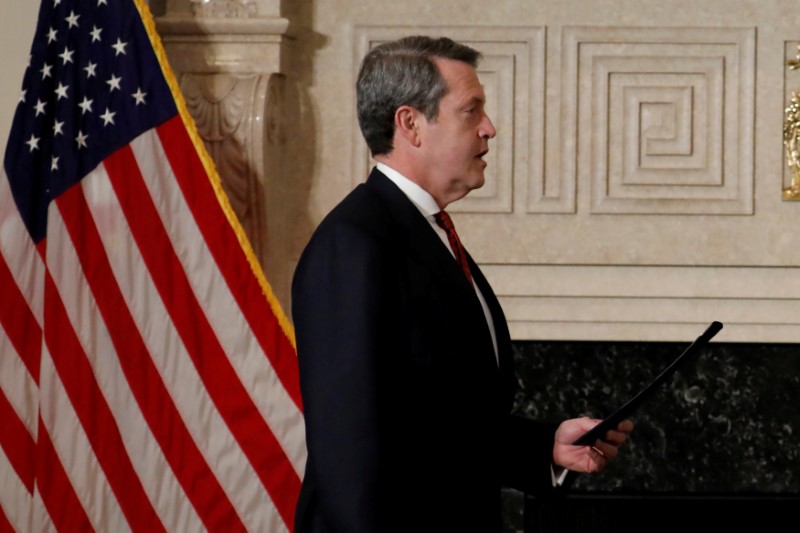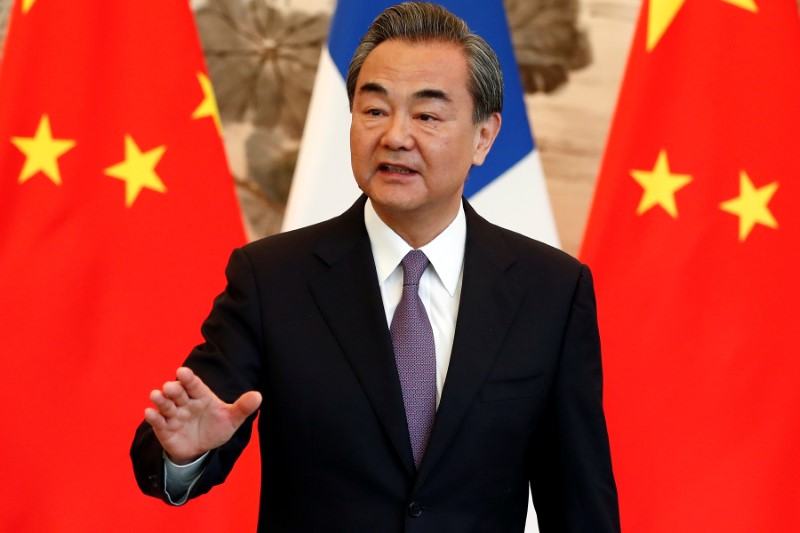
FILE PHOTO: Randal Quarles, Federal Reserve board member and Vice Chair for Supervision, takes part in a swearing-in ceremony for Chairman Jerome Powell at the Federal Reserve in Washington, U.S., Febuary 5, 2018. Picture taken February 5, 2018. REUTERS/Aaron P. Bernstein/File Photo
May 16, 2018
By Pete Schroeder
WASHINGTON (Reuters) – The top regulatory official for the Federal Reserve suggested Wednesday that regulators could consider lowering capital requirements for foreign banks operating in the U.S.
Randal Quarles, the Fed’s vice chair for supervision, said he wanted the central bank to review its current rules for foreign banks, particularly the levels of capital it requires global banks to hold internally to guard against failures of U.S. operations.
Speaking before Harvard Law School, Quarles specifically said he wanted the Fed to review the level of Total Loss-Absorbing Capital (TLAC) it requires foreign banks to hold internally.
He also suggested the U.S. could streamline its rules regarding the resolution of failing foreign banks, in acknowledgment of protective steps taken by other regulators – a move that could encourage other countries to ease their own restrictions on global banks operating within their borders.
“Willingness by the United States to reconsider its calibration may prompt other jurisdictions to do the same, which could better the prospects of successful resolution for both foreign G-SIBs operating in the United States, and for U.S. G-SIBs operating abroad,” he said, according to prepared remarks.
While considering easing requirements, Quarles said he continues to believe the U.S. requirement that foreign banks must create capitalized intermediate holding companies to cover any significant U.S. operations is an appropriate approach.
But he added that the overarching goal is to establish a regulatory balance that maximizes the chances that if a large global bank were to collapse, its home regulator would be able to direct its dissolution without a haphazard reaction from other regulators scrambling to seize assets under their jurisdiction.
“Any such balance is likely to be improvable with experience, reflection, and debate. We are interested in views from the firms and the public on how the regimes can be improved,” he said.
(Reporting by Pete Schroeder; Editing by Chizu Nomiyama)

